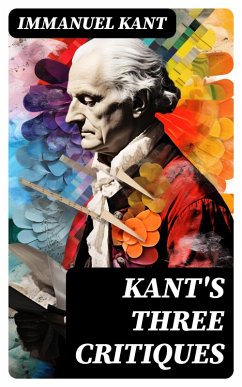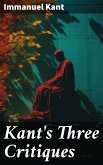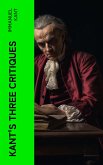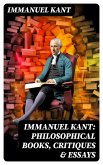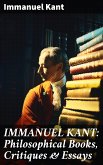In "Kant's Three Critiques," Immanuel Kant presents a foundational exploration of human knowledge, ethics, and aesthetics through his seminal texts: the "Critique of Pure Reason," "Critique of Practical Reason," and "Critique of Judgment." Each critique serves a unique purpose; the first interrogates the limits and scope of human understanding, the second articulates the principles of moral philosophy, and the third bridges the realms of beauty and morality. Kant's prose, renowned for its complexity and rigor, demands thoughtful engagement, situating his work within the Enlightenment context that champions reason, autonomy, and scientific inquiry. Kant, a pivotal figure in modern philosophy, published these critiques in the late 18th century, emerging from a milieu ripe for intellectual revolution. His experiences in the rapidly changing landscape of Prussia, coupled with exposure to rationalist and empiricist thought, catalyzed his inquiries into the structures of human cognition, ethical imperatives, and aesthetic appreciation. His rich background in mathematics and natural sciences also influenced his systematic approach to philosophy. Readers seeking a profound engagement with the questions of existence, morality, and perception will find "Kant's Three Critiques" indispensable. Kant's work challenges us to reconsider not just our understanding of knowledge, but also the ethical frameworks and aesthetic values that shape our lives, making it a vital resource for philosophers and general readers alike.
Dieser Download kann aus rechtlichen Gründen nur mit Rechnungsadresse in A, B, BG, CY, CZ, D, DK, EW, E, FIN, F, GR, H, IRL, I, LT, L, LR, M, NL, PL, P, R, S, SLO, SK ausgeliefert werden.

